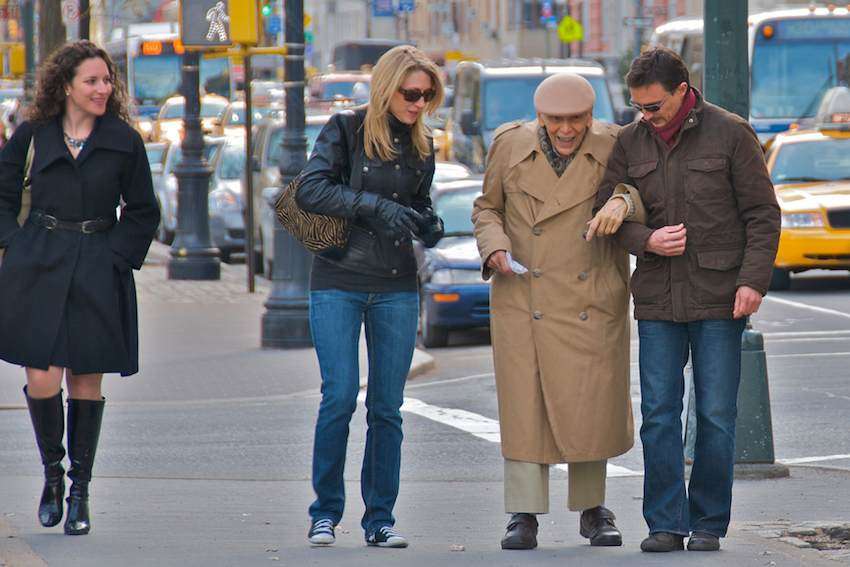Quiet Time Program Brings Radical Improvement To Schools Worldwide
Millions of at-risk students are being given 30 minutes of transcendental meditation to help improve happiness and livelihood – the results are incredible.

This week (February 9-16) is the tenth annual Random Acts of Kindness Week in the United States. Do something this week (see a couple ideas here) to take advantage of the benefits that kindness bestows on health and well-being. Dr. David R. Hamilton looked at the mind-body science and offers this summary of the five positive side effects:
When we do something kind for someone else, we feel good. On a spiritual level, many people feel that this is because it is the right thing to do and so we're tapping into something deep and profound inside of us that says, ‘This is who I am.'
On a biochemical level, it is believed that the good feeling we get is due to elevated levels of the brain's natural versions of morphine and heroin, which we know as endogenous opioids. They cause elevated levels of dopamine in the brain and so we get a natural high, often referred to as ‘Helper's High'.
Acts of kindness are often accompanied by emotional warmth. Emotional warmth produces the hormone, oxytocin, in the brain and throughout the body. Of recent interest is its significant role in the cardiovascular system.
Oxytocin causes the release of a chemical called nitric oxide in blood vessels, which dilates (expands) the blood vessels. This reduces blood pressure and therefore oxytocin is known as a ‘cardioprotective' hormone because it protects the heart (by lowering blood pressure). The key is that acts kindness can produce oxytocin and therefore kindness can be said to be cardioprotective.
Aging on a biochemical level is a combination of many things, but two culprits that speed the process are Free Radicals and Inflammation, both of which result from making unhealthy lifestyle choices.
But remarkable research now shows that oxytocin (that we produce through emotional warmth) reduces levels of free radicals and inflammation in the cardiovascular system and so slows aging at source. Incidentally these two culprits also play a major role in heart disease so this is also another reason why kindness is good for the heart.
There have also been suggestions in the scientific journals of the strong link between compassion and the activity of the vagus nerve. The vagus nerve, as well as regulating heart rate, also controls inflammation levels in the body. One study that used the Tibetan Buddhist's ‘Loving Kindness Compassion' meditation found that kindness and compassion did, in fact, reduce inflammation in the body, mostly likely due to its effects on the vagus nerve.
This is one of the most obvious points. We all know that we like people who show us kindness. This is because kindness reduces the emotional distance between two people and so we feel more ‘bonded'. It's something that is so strong in us that it's actually a genetic thing. We are wired for kindness.
Our evolutionary ancestors had to learn to cooperate with one another. The stronger the emotional bonds within groups, the greater were the chances of survival and so ‘kindness genes' were etched into the human genome.
So today when we are kind to each other we feel a connection and new relationships are forged, or existing ones strengthened.
When we're kind we inspire others to be kind and studies show that it actually creates a ripple effect that spreads outwards to our friends' friends' friends – to 3-degrees of separation. Just as a pebble creates waves when it is dropped in a pond, so acts of kindness ripple outwards touching others' lives and inspiring kindness everywhere the wave goes.
A recent scientific study reported than an anonymous 28-year-old person walked into a clinic and donated a kidney. It set off a ‘pay it forward' type ripple effect where the spouses or other family members of recipients of a kidney donated one of theirs to someone else in need. The ‘domino effect', as it was called in the New England Journal of Medicine report, spanned the length and breadth of the United States of America, where 10 people received a new kidney as a consequence of that anonymous donor.
David R Hamilton earned an honors PhD, specializing in biological chemistry in England. Fascinated by the placebo effect while working in the pharmaceutical industry, he studied mind-body interactions in his spare time. He is now a bestselling author of 7 books, including Why Kindness is Good For You and How Your Mind Can Heal Your Body. He offers talks and workshops that use science to inspire others toward self-improvement. Learn more at drdavidhamilton.com.
Photo (top) by Ed Yourdon, via CC license
Be the first to comment